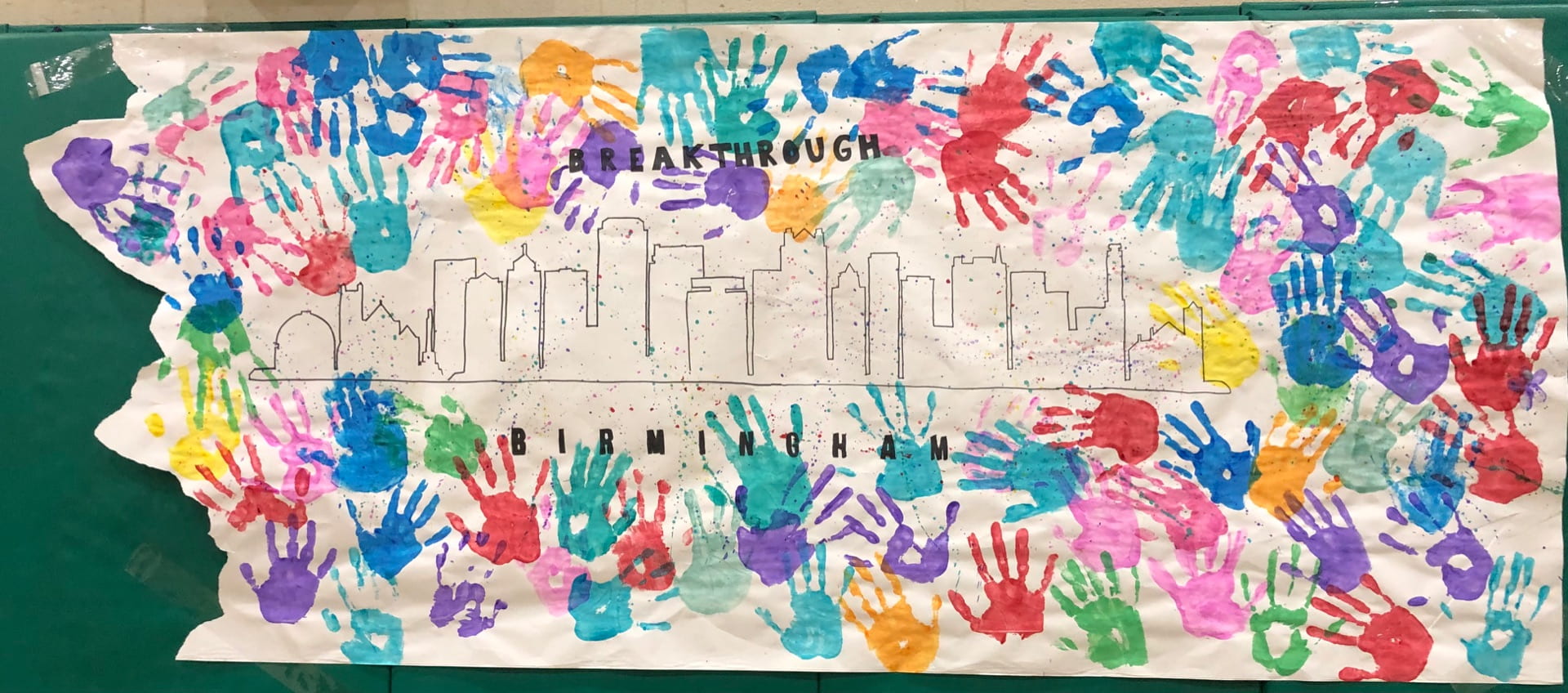
Over the summer, I had the chance to be part of an amazing program, a program that at first, I believed would be a way for me to serve my community, but instead, I found community within. This program, known as Breakthrough Birmingham, is one of many Breakthroughs located in various cities across the country, serving communities with a mission and vision to bridge the academic gap produced by the pandemic and the larger systemic inequalities that exist in educational systems nationwide. Breakthrough is a nonprofit organization that commits to ensuring that all children, regardless of their socioeconomic status, have a chance to pursue higher education and find a passion for learning along the way. They aim to do this while also mentoring future leaders and teachers to be better prepared for their teaching careers and leadership roles. With 24 different locations around the nation, Breakthrough is slowly trying to bridge the opportunity gap in America while retraining future educators to teach through the lens of inclusion, diversity, equity, and anti-racism. Before diving into Breakthrough and its many accomplishments, it is important to understand the purpose that nonprofit organizations like Breakthrough serve in their communities and why they are necessary in the first place.
Background About the American Education System and Breakthrough as a Whole
So, what is a nonprofit organization, and why are they important to have? Nonprofit organizations are created with a specific goal, or mission in mind, which aims to address a specific need in the community. The public sector (the government and its agencies) aims to address the needs of the majority voters, leaving behind many issues that impact minority voters. The private (business) sector, on the other hand, focuses primarily on its bottom line, which is making a profit. As a result, the private sector caters to those who are deemed customers, leaving behind those who cannot afford their goods and services. This is where nonprofit organizations come into play. Nonprofits stick to a vision, form a mission statement, and have a double-bottom line of staying true to their mission while also making a profit to put back into the organization. While they may be focused on a single issue, each nonprofit organization aims to address a particular issue being neglected by the public sector and left behind by the private sector. Nonprofits are – by law – non partisan and non-political. This means they are inclusive in their services and do not deny service based on the ability to pay. Breakthrough is one such organization addressing the shortcomings of our country’s education system, which provides endless opportunities to those who can afford them, and leaves behind the rest with the equivalent of the bare minimum in education.
This of course has to be looked at through a historical framework, and as we know all too well, Birmingham’s educational system has historically been one of the most segregated and underfunded school systems in the nation. Even when the rest of the nation began desegregating their school systems after Brown v. Board of Education was passed, Birmingham was one of those cities that resisted and refused to comply. As Birmingham finally began desegregating, the school systems had to deal with funding issues, and in response, local officials began to redraw district lines to ensure that certain well-to-do (white) families were positioned inside well-funded school districts. A topic that can be a blog in and of itself, because of racially inspired redlining efforts that were supported by the federal government during the 1930s, to this day, the funding that school systems receive is directly impacted by the housing values in America. As a result, students from lower-income households are zoned to attend schools with low funding, while students from higher-income households attend schools with higher funding. Due to the inequalities brought about by this phenomenon, there exists an educational gap between the students from low-income families and those from high-income families, and this opportunity gap further impacts the students’ decision to pursue higher education or not. To get a better understanding of the legacies of racial segregation on our education system, read this article by Nekole Hannah Jones.
While Breakthrough’s mission was a necessity, to begin with, its need has amplified due to the chaotic school years brought about as a result of the pandemic. The COVID-19 pandemic has exacerbated the education gap between low-income students and those who come from high-income families. Many students who didn’t have the resources to access the online modules were neglected as a result of switching to online classrooms. Research showed that by the end of the school year in 2021, many students across the nation were behind on math and reading skills by several months. Additionally, trauma and instability can be discouraging academically and can severely impact the students’ development process.
As such, Breakthrough is an organization that aims to bridge the opportunity gap in vulnerable cities across the nation. After conducting tremendous research and tailoring programs to fit the community’s needs, Breakthrough Birmingham became one of their local branches, serving the Birmingham City Schools (BCS) District and partnering with local universities to empower the future educators of tomorrow with a holistic approach to teaching the next generations. Breakthrough offers year-long academic services to underprivileged scholars in their community, and their summer programs specifically aim to slow the “summer slide,” (which is the tendency of scholars to lose some of their academic skills from the lack of academic practice over the summer). Interestingly, Breakthrough serves a specific age group, mainly middle schoolers, and even employs a specific academic group during the summer, undergraduate students.
Why Middle Schoolers? Why Undergraduate Teaching Fellows?
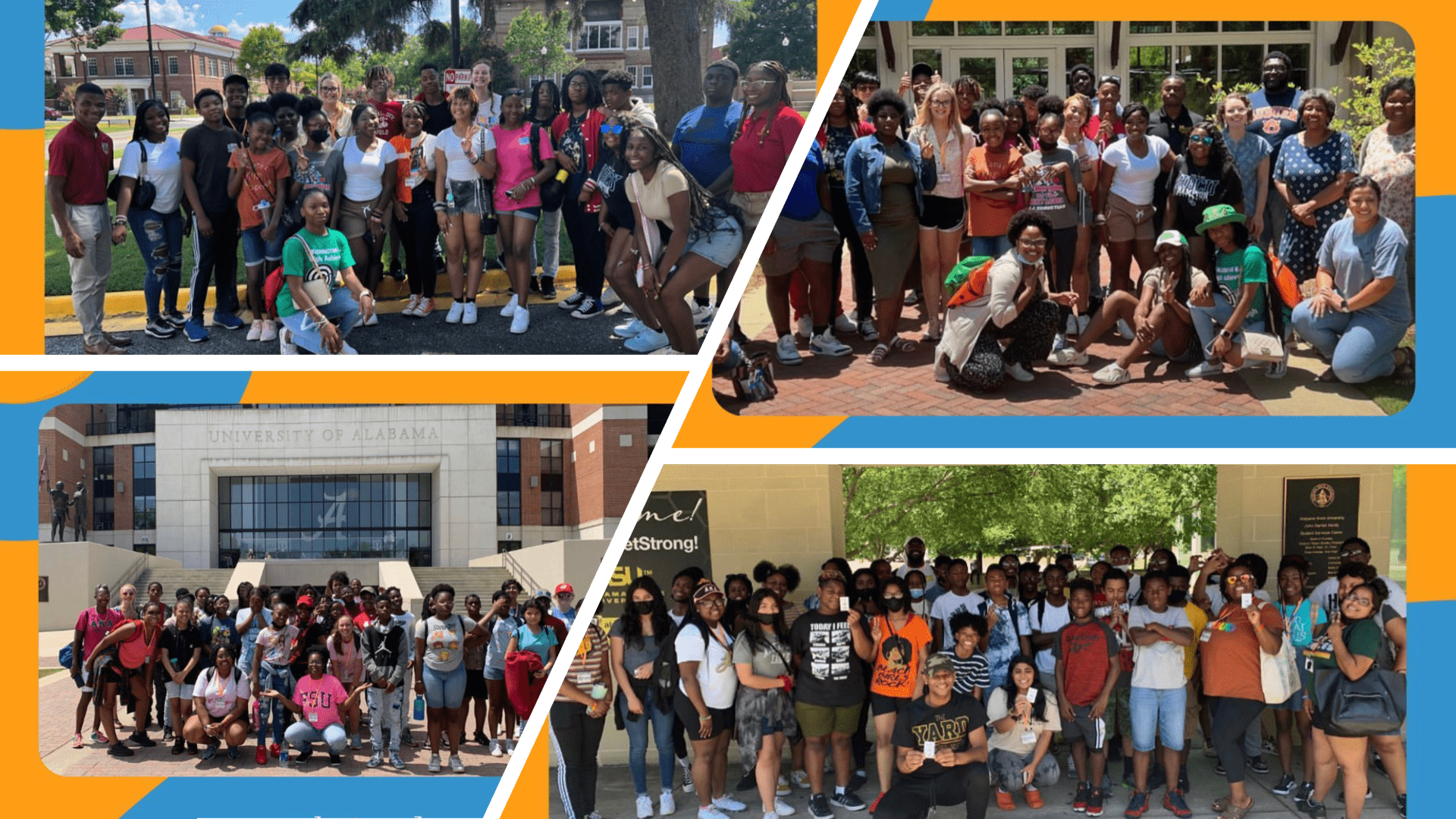
Breakthrough as an organization focuses on its middle school age group for many reasons. Middle school can be a very stressful time for a young student, and researchers wanted to understand why. Upon further inspection, scholars at Portland State University found that young adolescents between the ages of 10-15, experience many waves of development during this period of their lives. They develop physically, both externally in terms of height and weight, and internally, in terms of muscular and skeletal structures, but also chemically, in the form of changes in hormone levels. This can lead to a lot of discomfort in body image/self-esteem issues, as well as uncertainty around their sexuality. Additionally, students develop emotionally, meaning that they may need more guidance on processing certain emotions and feelings. Furthermore, students in this age group are developing morally, and as such, are beginning to develop a strong sense of right and wrong. This can have lasting impacts on their ability to ethically judge situations. Students are also developing socially, meaning that they can sometimes be socially awkward until they find a peer group they fit into. While all these developments are taking place, students at this age also undergo developments in their intellect and depending on the guidance they receive, this characteristic can determine their interest in higher learning. This can mean that without proper mentorship, many students will fail to see the importance of higher education, or, students who come from families where they are first-generation scholars, may not even be aware of the opportunities at hand if they are never introduced to them. Recognizing these factors, Breakthrough created a summer program particularly aimed at ensuring middle schoolers in the community can have a safe, fun-filled learning environment that can guide their scholars through the various developments they experience in this age range.
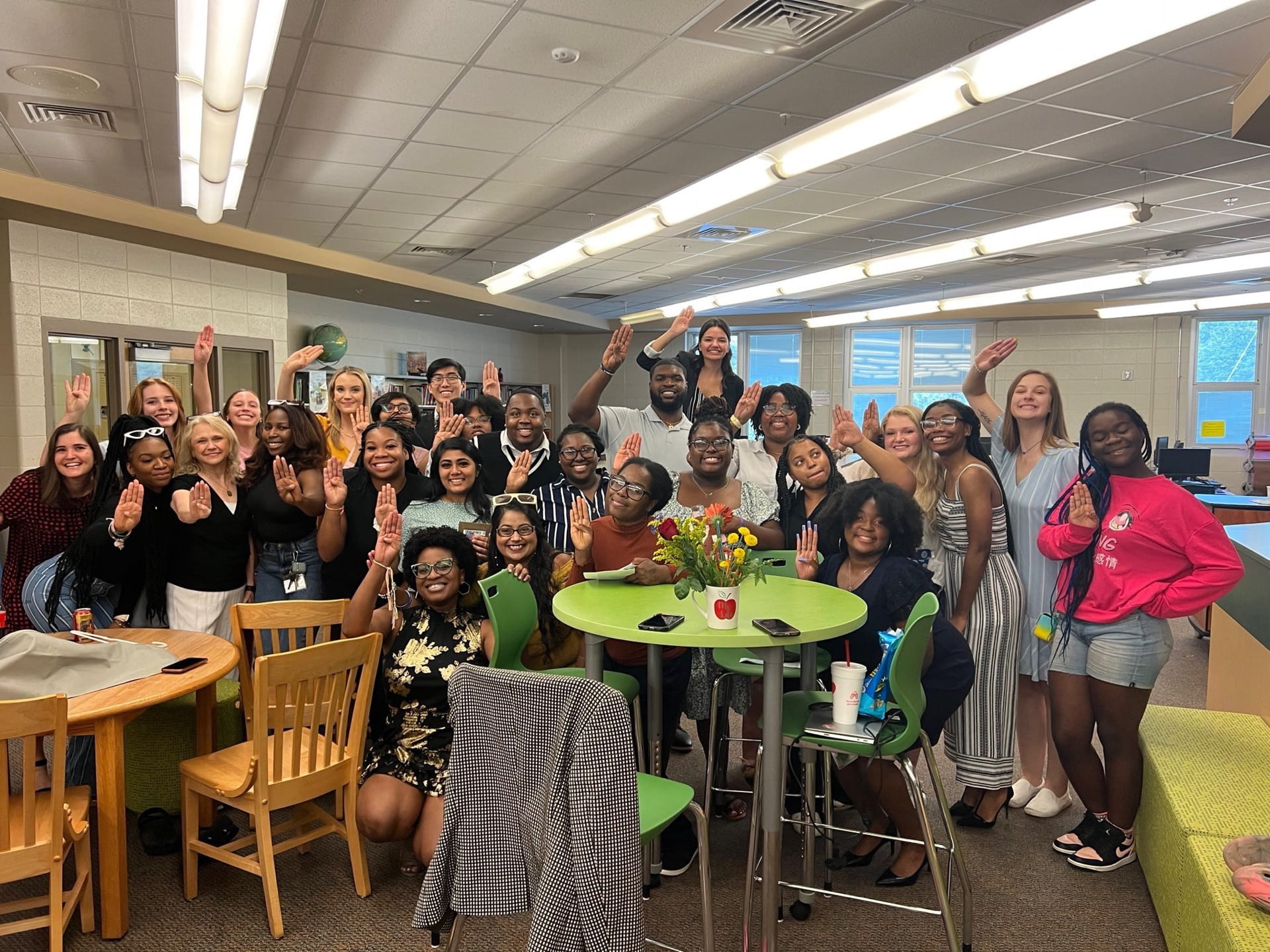
Additionally, Breakthrough employs undergraduate teaching fellows during their summer program to provide their middle school scholars with mentors who are closer in the age group to the middle schoolers than their traditional teachers at school. This helps scholars build meaningful relationships with teaching fellows, and as such, scholars are more receptive to information and direction. Furthermore, representation is key, and employing undergraduate teaching fellows provides middle schoolers with adults who look like them, and who share commonalities with them. Studies show that there is an overwhelming number of teachers who are predominantly from one particular race, and gender, (white, women) teaching primary education. Seeing someone that looks like them in a teaching position is powerful in encouraging younger scholars to pursue their academic dreams. This includes the fact that throughout history, the teaching occupation has been held by mostly women. Being able to see male teachers can additionally empower young boys to perhaps pursue teaching careers in their future. Finally, Breakthrough ensures that teaching fellows approach the scholars from anti-racism, diversity, equity, and inclusion standpoints, making sure to provide weeks-long training sessions to familiarize teaching fellows with the local history and major concepts of anti-racist teachings, as well as introduce teaching fellows to multiple professional speakers for further guidance on such topics. Teaching fellows are also expected to understand the social, economic, political, and environmental context from which their scholars come, so as to be aware of some of the outside forces at play that influences the scholars’ behaviors. Operating under a “high expectations, high support” system, Breakthrough expects nothing but the best from its teaching fellows, while providing resources and a strong support system to teaching fellows to ensure that no scholar is left behind.
The Three Pillars: Exposure, Relationships, and Growth Exposure

One of the three pillars that Breakthrough Birmingham is founded upon is the pillar of Exposure. This exposure piece applies to scholars and teaching fellows alike, and at times, because of the dynamic of the working environment found at Breakthrough Birmingham, it also applies to the staff and administration as well. During the summer program, scholars are exposed to students that come from various parts of the BCS district and meet as one cohort, sharing similar experiences. Having friends from different backgrounds can expose students to different cultures and lifestyles, and as such, can be a healthy addition to their development. This also fosters a sense of belonging among the Breakthrough community, and as such, encourages a safe environment for the scholars to learn and grow.
Additionally, scholars are exposed to information regarding their future, including preparing for high school, visiting college campuses, and even learning about various career fields and interview etiquette at a career day fair. Scholars are also exposed to the community around them, and learn about topics through an inclusive lens, focusing on equity, diversity, and anti-racism. With daily advisory classes that focus on culture building, elective lessons three days a week that give scholars a chance to explore new areas of interest, and all school and/or all-grade meetings held daily in an attempt to strengthen the newly formed friendships and relationships, every activity at Breakthrough is intentionally crafted to expose scholars and teaching fellows alike to new experiences.
Furthermore, teaching fellows also benefit from this exposure pillar in many ways. Teaching fellows (TFs) are hired from all over America, so TFs are provided with the opportunity to work closely with students that come from various backgrounds, and who share a common work environment. TFs go through various training sessions together, where they are exposed to inspiring community leaders, and get the chance to explore the local community’s history together. The TFs are therefore exposed to different ideas, people, and cultures, and are given the opportunity to form friendships that can last a lifetime. TFs are also exposed to roles of leadership and are expected to work in committees that teach teamwork and communication skills.
Relationships
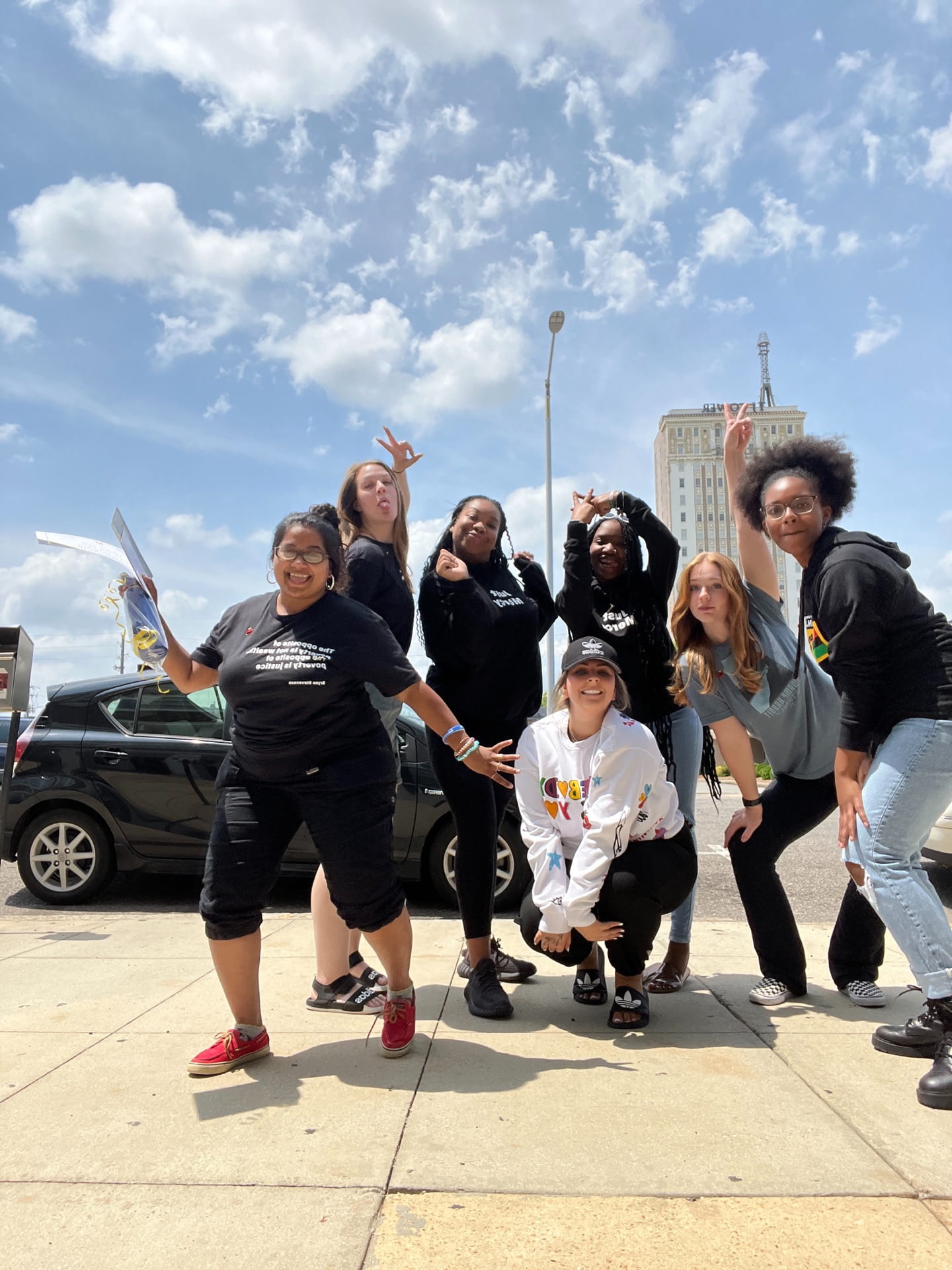
The working environment at Breakthrough fosters a sense of community, as staff and administration work alongside the TFs on a daily basis to ensure the smooth and effective operation of the day. This model emboldens the relationship between TFs, scholars, and staff, and strengthens the sense of trust within the organization. This, in essence, embodies the second pillar of Breakthrough: Relationships. TFs get to build lifelong connections and relationships with each other and the management team. With a healthy work environment that encourages TFs to “exhale from school” and prioritize self-care, Breakthrough is a workplace with high expectations and high support. Scholars are also able to make meaningful relationships with each other as well as with other TFs. Many scholars find lifelong mentors in teaching fellows, and as a result, can have a positive role model to look up to.
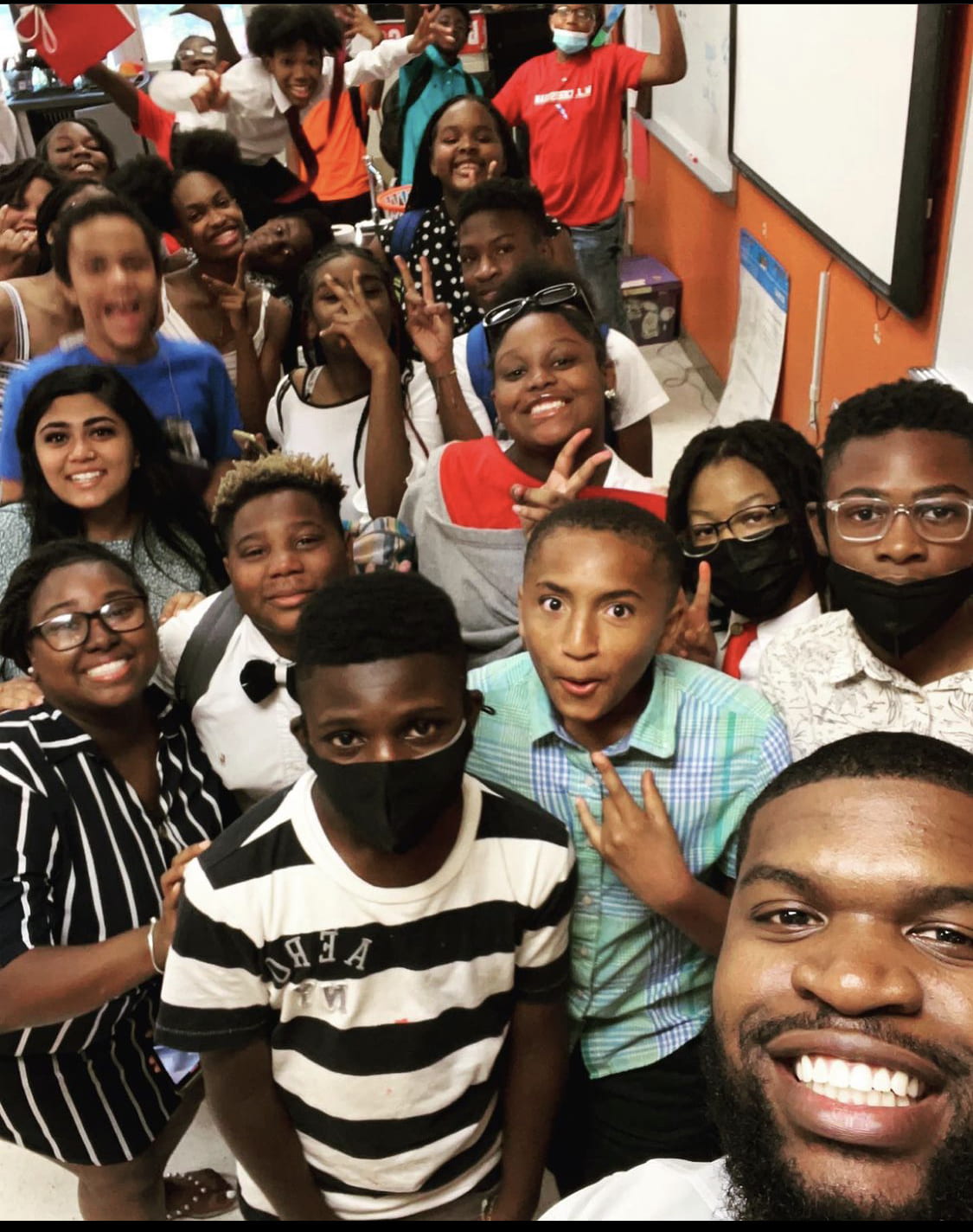
Growth
Breakthrough’s third pillar, Growth, provides the results of the hard work exerted by scholars, TFs, and management alike. Breakthrough has some serious results. Not only can scholars improve their academic skills tremendously, but they are also able to weave through various social, emotional, and cultural experiences by learning how to approach situations holistically. These socio-emotional improvements are just as important as the academic ones and can actually have a positive impact on their academic abilities.
From my own experience at Breakthrough Birmingham, my scholars in my writing class were able to improve their writing skills from novice to proficient, and some were even distinguished. This was determined by providing pre-assessments before the start of the summer program and post-assessments towards the end and comparing the results from the two assessments. While many of my eighth-grade scholars came into my class with a bare-minimum understanding of what an essay was, by the time they took their post-assessments almost a month later, they were able to demonstrate their knowledge of the different parts of an essay, were able to write decent thesis statements, and many were even able to craft a standard five paragraph essay, even though they were only required to write three. As for the socio-emotional improvements, I witnessed the scholars growing more confident in their self-image and in their ability to present the knowledge they had gained. I witnessed their improvements in maturity and helped them exercise their patience. Even though the program lasted a month, I could see measurable improvements from my scholars.
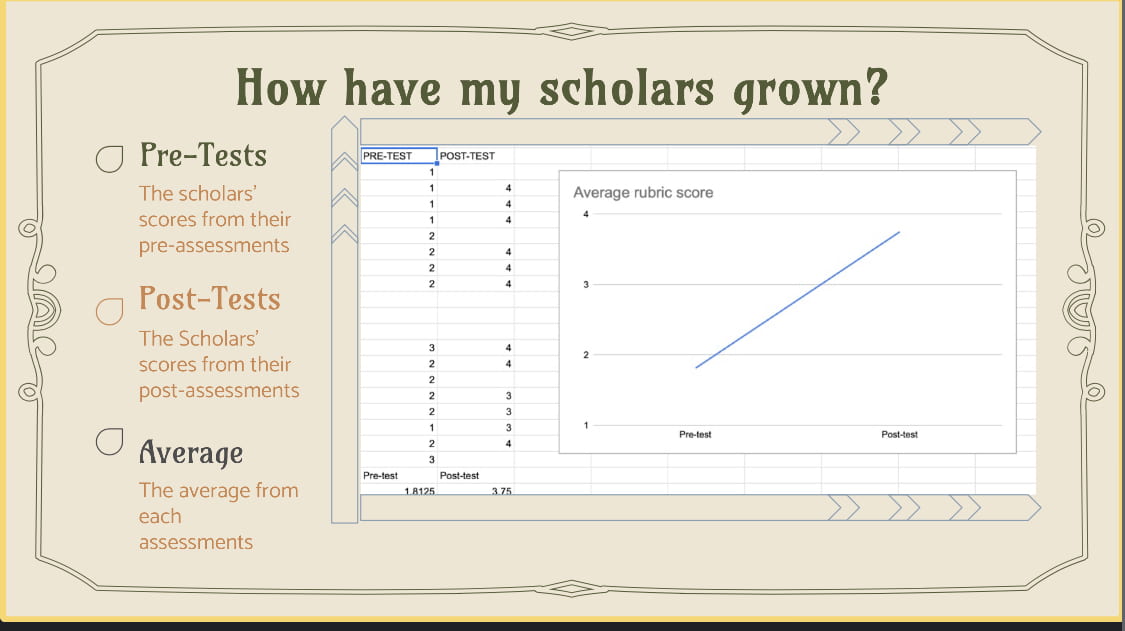
I also witnessed some growth within myself. Breakthrough’s structure emphasizes the importance of reflection, and this is practiced starting from the pre-work that TFs are required to complete as part of the orientation process and continues to the very last day of closing. From daily reflections to interpretations of norms, to admin check-ins periodically, to the end-of-summer presentations of learning, reflection and review are a big part of Breakthrough’s culture. This practice ensures that ideas and actions remain mindful and intentional, and places importance on the growth mindset. TFs can truly see for themselves just how much they have grown over the summer. Also, Breakthrough introduces a network of resources and opportunities for TFs to pursue, including opportunities to be employed by Teach For America for those pursuing a future in education.
How to get involved
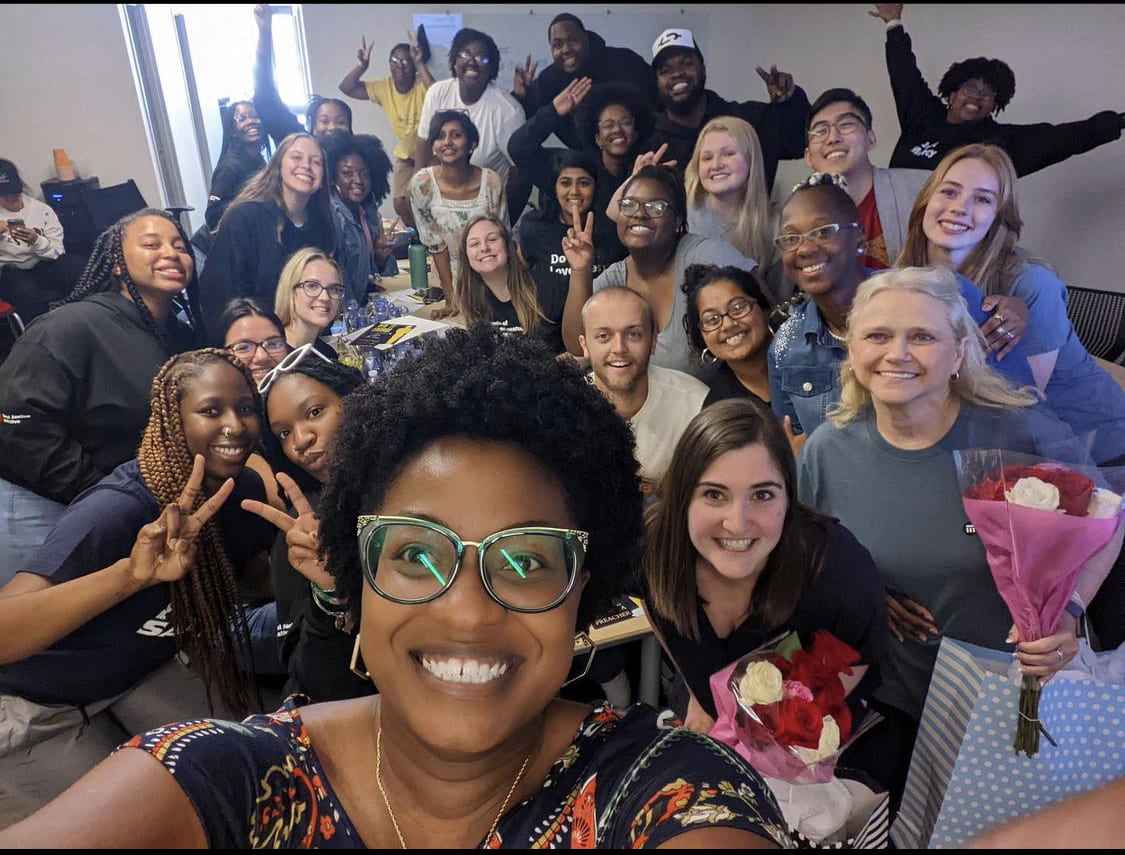
For those of you who may be interested in the scholar programs at Breakthrough Birmingham, they offer various year-round programs for 7th-10th grade scholars, and during the summer, they offer a six-week summer program for rising 7th, 8th, and 9th graders. Additionally, those who want to support the organization can do so through donations, volunteer work, or simply spreading awareness of the program to others who may benefit from a program like Breakthrough, both scholars and teaching fellows alike. The right to an education is one of the fundamental rights outlined in the Universal Declaration of Human Rights, and one that should apply to all children everywhere. Furthermore, education can be a powerful tool for ending oppression. Students’ ability to think critically and ask questions empowers them with the necessary tools to question unlawful or immoral behavior, recognize corruption, lies, and deceit, and provide holistic solutions to complex problems. Without these tools, students will continue to live in poverty and under oppressive conditions, not knowing how to change the world around them for the better.


Published by